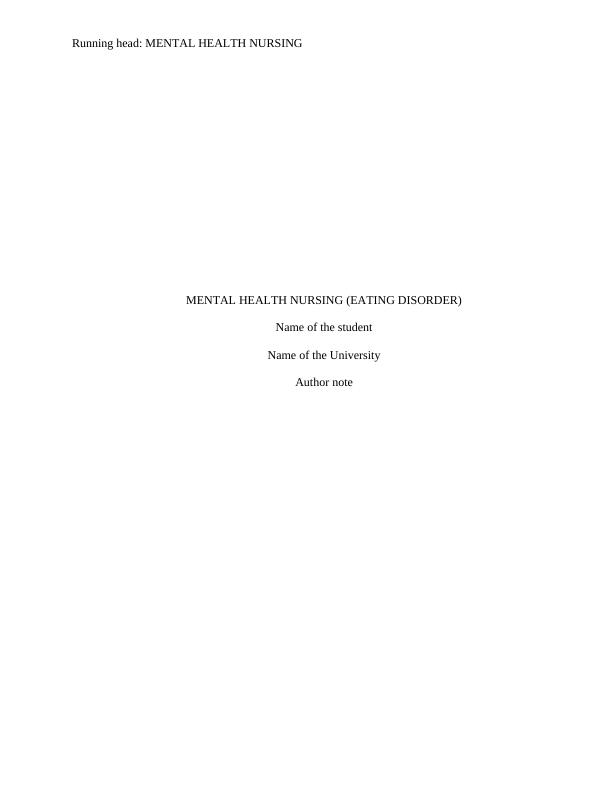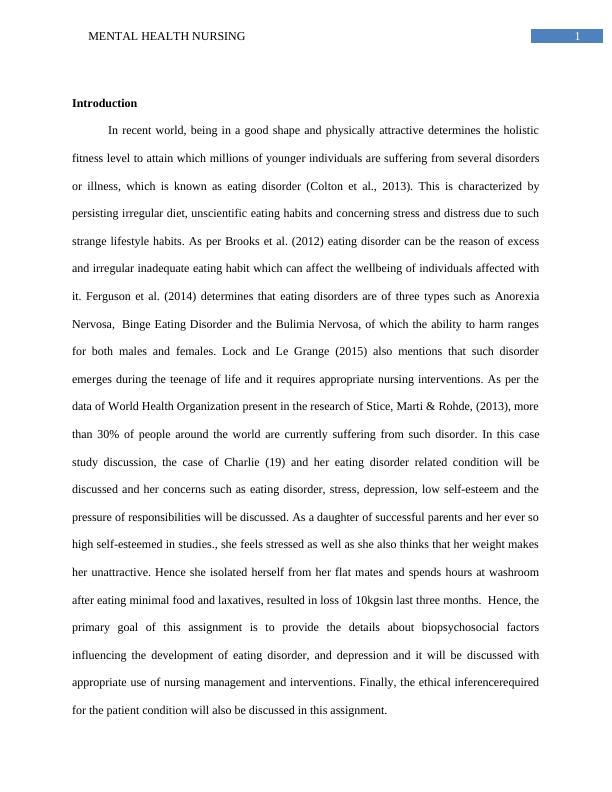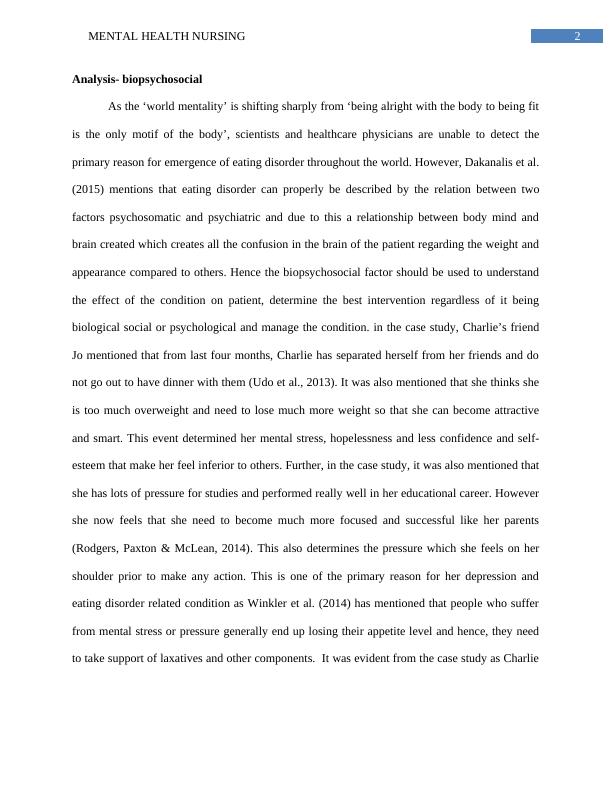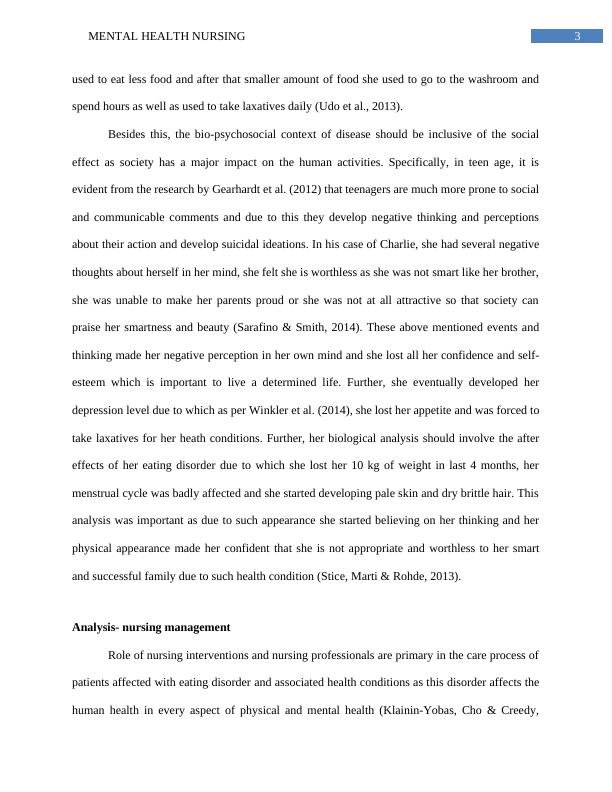Mental Health Nursing: Eating Disorder Case Study
Analyzing a case study to discuss biopsychosocial factors and nursing management for a mental health issue.
11 Pages3466 Words286 Views
Added on 2023-06-08
About This Document
This case study explores the biopsychosocial factors influencing the development of eating disorder and depression in Charlie. It discusses nursing management interventions and ethical considerations for patients with eating disorders.
Mental Health Nursing: Eating Disorder Case Study
Analyzing a case study to discuss biopsychosocial factors and nursing management for a mental health issue.
Added on 2023-06-08
ShareRelated Documents
End of preview
Want to access all the pages? Upload your documents or become a member.
Biopsychosocial Assessment in Eating Disorder
|10
|2828
|413
Care Interventions for Empowering Vulnerable Groups with Chronic Conditions
|9
|3076
|58
Eating Behaviour and Eating Disorders: A Case Study
|9
|2793
|38
Developing Mental Health Nursing: Formulation, Interventions, and Ethical Issues
|10
|2768
|351
The Assignment on Mental Health and Illness
|7
|1718
|22
Assignment | Adolescent health or the youth health
|7
|1639
|18




